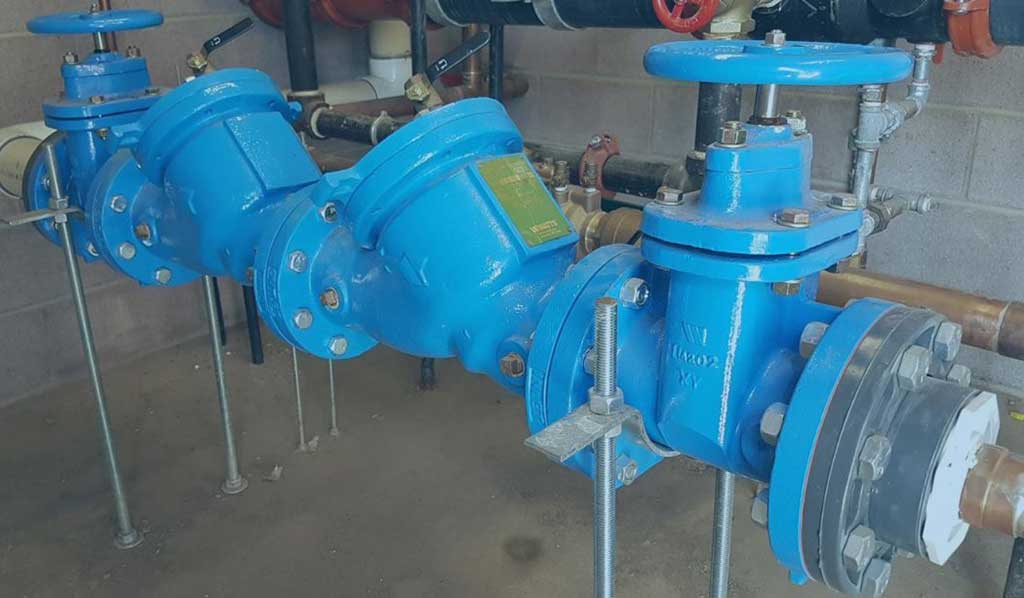Maintaining clean drinking water is important in any plumbing system, but it’s also something that the average property owner will always take for granted. After all, when a plumbing system is working and installed properly, there’s little to worry about. However, backflow is a serious issue that could lead to contamination of the water. As such, understanding more about it and allowing a professional to administer the appropriate backflow testing procedures is important for anyone.
Backflow testing is required by state and federal laws for water suppliers, and many property owners may also need to invest in having professional backflow testing procedures done on their water systems in order to ensure that they’re working safely and that no contamination is present.
What Is Backflow?
Backflow is a plumbing problem wherein there is a reversal of the water’s flow in the plumbing system. Instead of water flowing forwards, pressure changes and other issues can trigger water flows in the opposite direction of where it should be moving. This can force contaminated, non-potable water into the source of drinking water, leaving it unsafe for use.
Numerous problems can lead to backflow including issues like water leaks, improper installation of pipes or fixtures, and even external factors like firefighters using massive amounts of water on the main line. However, no matter the cause of it, preventing backflow is important. And the first step is making sure that there isn’t a backflow problem and that your system is prepared to prevent it. In order to be sure, you’ll need to have a trained professional complete backflow testing procedures on your water system.
What Are The Basic Backflow Testing Procedures?
Today’s backflow testing procedures are very similar to those used over the decades. There are two basic focuses of these tests. The first is to identify whether or not backflow is present, and the second is to determine the issue that is causing it and how to fix it.
When testing the actual devices that prevent backflow from occurring, the test procedures involve using the gate valves and relief valves on the backflow testing device. Essentially, the tester will be closing valves and checking for points where there is a differential gauge movement, water leakage, and other clear signs.
By using a combination of pressure testing, visual inspection, and other steps, your backflow testing professional can identify problems and determine the best path to a solution for your needs if an issue exists.
Can I Test For Backflow Myself?
While you can take steps to identify backflow, most cities and states require that a registered backflow prevention tester handle all of the required backflow testing procedures. The importance of accurate backflow testing procedures is too great to ignore, which is why having your system and the public systems that may feed into yours tested by a pro is a must.
You can identify potential signs of backflow, including:
- Dirty or discolored water
- Murky water
- Strange smelling or tasting water
- Sediment in water
If these signs are present, it’s important to let one of our professionals run a test on your system. It will be the first step towards identifying potential problems and towards solving them so you can have clean, safe water again.
What If I Already Have A Backflow Prevention Device?
It’s important to bear in mind that even if you have a backflow prevention device in place, you may still need a professional to conduct backflow testing procedures on a periodic basis. The reason is that devices are mechanical and over time they can fail or begin to work at less than perfect rates. Routine testing ensures that your devices are still working and that your plumbing professional can quickly identify problems and correct them before they become serious.
The Bottom Line
Your water is precious to you, which is why virtually every state and city has strict regulations in place concerning the way it is brought to you as well as for backflow testing procedures, backflow devices, and more. Even federal regulations require water suppliers to protect their water systems from things like pollution, contamination, and safety risks. Local water departments run tests of their lines on a regular basis, but homeowners and property owners should as well.
Annual testing of backflow prevention systems are an absolute must, and will not only keep you compliant with any laws but will also give you the peace of mind needed to rest easy knowing that your water is safe and healthy for your family.


